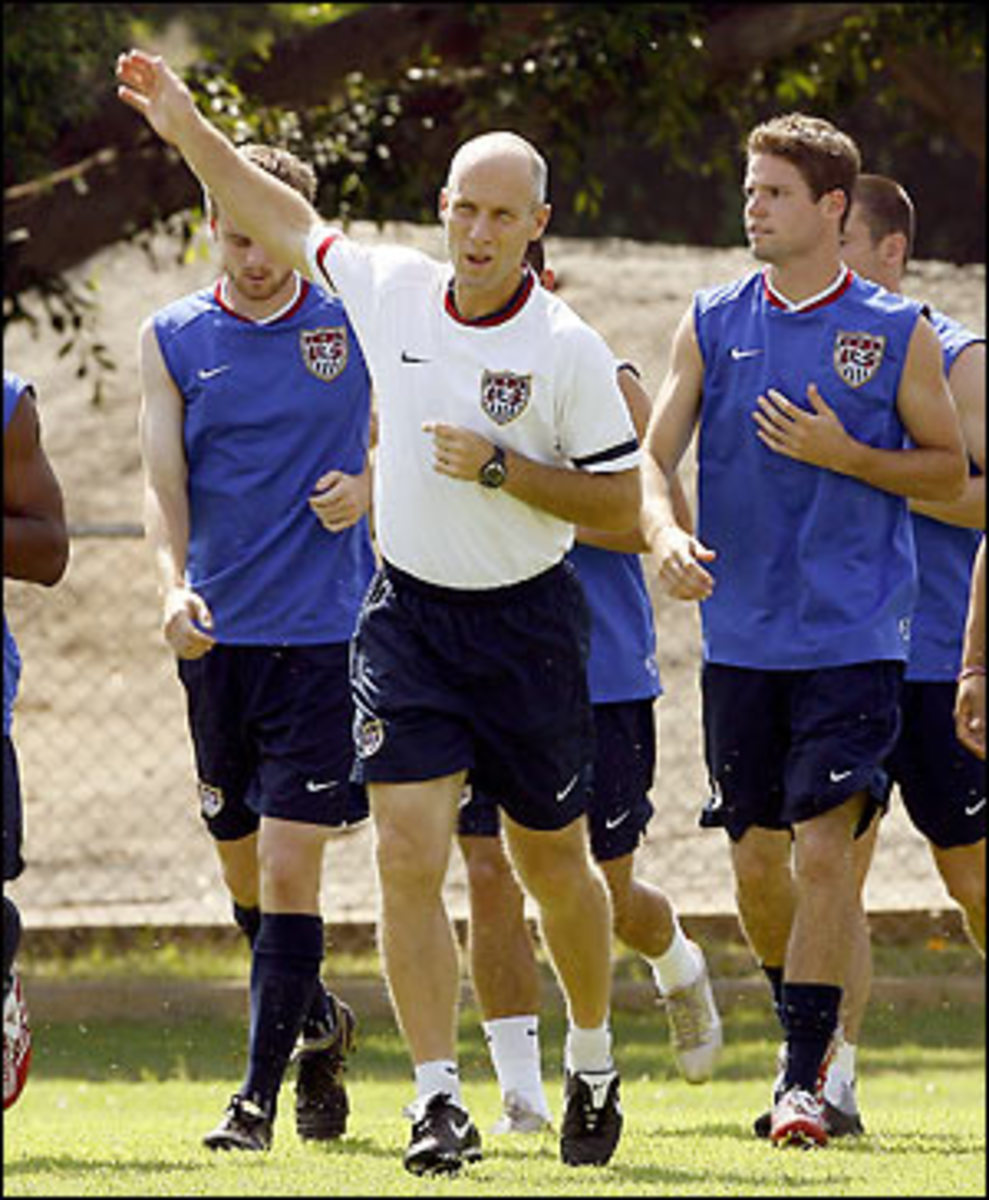Turning the page
It's like sophomore year in college: The freshman free-for-all is passé but you also don't have to apply yourself like juniors do. So you wind up watching cooking shows starring Lorenza de Medici or renting Gus Van Sant movies with the tattooed girl from American Lit class.
However, it turns out there's lots to learn sophomore year, just not in any traditional way. (Case in point, I make some mean ravioli, and I still dream about that tattoo.)
So even though in '08 the senior U.S. national squad has few meaningful games -- until late in the summer, when the semifinal rounds of World Cup 2010 qualifying begin -- and no high-profile tournaments, it actually is a vital 12 months.
For one thing, it should afford some of the players some necessary rest. Secondly, head coach Bob Bradley must use this year to continue putting his own intense imprint on the program, establishing a mentality of success and flushing out the noxious fumes lingering from the previous regime. (Honestly, how much more fat-catty could the national team get?)
Bringing in new players will enhance the competition within the squad. That's proven, and it's been a Bradleyan strategy from day one. Here's a fascinating stat: Over the course of 18 games last year, 67 different players suited up for the full U.S. national team, including nine debutantes. And the Liverpool fans are spilling their pints over Rafael Benítez's system of turnover.
Just getting new names printed on the jerseys can be a form of wheel-spinning rather than an organized developmental plan. Based on his 12-5-1 record in '07, I like to give Bradley the benefit of the doubt, but he called some eye-popping names into camp ahead of the Sweden friendly later this month.
Names like Will Hesmer, the Columbus Crew goalkeeper (sometimes), and Todd Dunivant, who was traded away from the New York Red Bulls. These two and a few others have about as much business being on the training fields as Drew Carey does.
The Summer Games in Beijing will be another important stage for the young dudes to impress, since Olympic soccer squads are made up almost completely of players 23 years old or younger -- look for more senior looks for guys like Freddy Adu, Jozy Altidore, Michael Bradley and Feilhaber.
Change is good. To an extent. If everything is in constant flux, nothing of substance gets done. So '08 is also a year when Bradley must look to settle on his lineup, especially in the back. Defenders like Oguchi Onyewu, CarlosBocanegra and Steve Cherundolo -- these guys need as much time together as possible, learning how to defend as a unit.
(I, personally, would also like to see Michael Parkhurst -- who has just one cap in his collection -- receive an extended look. He's the cerebral FrancoBaresi-like center back the U.S. has lacked for a long time.)
Bradley's second year is perfect for (cliché alert!) building chemistry. The players must learn to be teammates -- hang out with each other, play video games together, check out each other's Facebook pages (or whatever it is twentysomethings do with their free time now that Lorenza has retired to Tuscany and My Own Private Idaho is largely forgotten).
All of that will pay massive dividends come '09, when the U.S. heads to South Africa for the Confederations Cup and World Cup 2010 qualifying opponents are not pinpricks on the map.
Clichés exist for a reason. Because they're true. Sophomore slumps also exist for a reason. Because you're preparing for what comes next. It's not necessarily a slump; it's more a hibernation.





